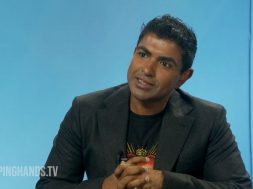
By: Michael McQueen
They grew up in a digital age with no memory of a pre-internet world, and reached adulthood within an era of lockdowns and global crises.
As a result, Generation Z finds itself in a very unique set of circumstances that are consistently setting it apart from previous generations.
All this to say, Gen Zs are thinking about their relationship with work very differently to their predecessors!
Here are 3 ways Gen Z is approaching work:
1 – Gen Z are not to be tied down
With a strong impulse for independence, Gen Zs are highly averse to feeling tied down to their work or workplace.
A ResumeLab study revealed that 83% of Gen Zs describe themselves as job hoppers, highlighting how comfortable young people are with this characteristic being a key feature of their identities. 75% would not he hesitate to leave a job even if they don’t have another to go to, and 43% don’t plan to stay with their current employer any longer than two years.[1] This generation is not interested in long term commitments to workplaces but would rather try multiple jobs and move quickly from one challenge to another.
Not only do Gen Zs not want to feel tied down to a job, but they don’t want to feel overly tied up in the work itself. 73% of Gen Z workers say a healthy work-life balance is more important than salary and 70% would willingly quit a job that was damaging their work-life quality.[2]
With this work-life balance being a priority for young people, the right to disconnect is crucial. It’s been highlighted that this right is especially important for because the lines between work and recreation are most easily blurred for Gen Z whose smartphones are crucial to both. Work notifications outside working hours are likely to come up on exactly the device they are using to relax.[3]
2 – It’s not about the money
Not only are Gen Z uninterested in being overly tied to their work, but they also claim they are more driven by meaning than money with almost two-thirds (65%) saying they’d prefer to do something of significance rather than merely earn a big pay packet.[4]
Consistently, Gen Z are looking for work that aligns with their values and gives them a sense of leaving a meaningful impact on the world for the better. The stats reflect this, revealing that
72% say having satisfying job duties is more important than salary.
70% say having meaningful work is more important than salary.
70% say they would quit their job if it doesn’t make them happy.[5]
Today’s young people have a clear sense of their own values and opinions and are ready and willing to confidently contribute within their workplaces. While older generations may view this confidence as a kind of arrogance or entitlement, it much more closely reflects the generation-wide desire to make a difference.
Gen Z thrive most when given opportunities to express their passions and use their skills in the workplace. Leaders can play into this by providing avenues for young people to bring use their abilities for the greater good of the company. Coupled with this, clear opportunities for growth help to weave a young person’s personal ambition in with their contributions to an organisation.
Particularly given the fact that Gen Zs are significantly mor driven by a sense of meaningful, impactful and values-driven work, this kind of leadership is crucial in engaging them.
3 – Work and friends are not to be confused
Interestingly, while Gen Z want their workplaces to provide them with this sense of purpose and meaningful work, they tend to keep their socialisation and their work separate. The prioritisation of work-life balance or separation and today’s remote work trends means that Gen Z is thinking very differently to older generations about their friendships at the office.
For Gen Z, work and life make up two separate worlds and work is not necessarily viewed as a place for socialising. With remote work having become a norm during the formative years of their entry into the workforce, many are unfamiliar with the idea of having strong social ties to colleagues. The convenience of remote work often trumps the connectedness of in-office work. and despite Gen Z widely reporting feelings of loneliness, these feelings are not enough to sway them towards workplace social connections.[6]
The lack of social connections within workplaces is highly related to Gen Zs high job-hopping rates, with friendships and a sense of belonging being key factors in motivating commitment to a particular workplace. The reality is that workplaces provide a significant amount of community to employees, not to mention unofficial mentorship and networking opportunities.
These work friend trends occur alongside statistics pointing to the poor mental health and high levels of loneliness in this generation. Whether these feelings of isolation will be enough to at some point sway them back towards the office remains to be seen.
Overall, Gen Zs are thinking very differently about work than their older counterparts. They prioritise independence over commitment, meaning over money and work-life separation over socialisation. Engaging this generation will be about highlighting a meaningful vision and creating space for them to have an impact in their unique way.
[1] Brower, T 2024, ‘7 ways to lead for the unique needs of Gen Z’, Fast Company, 16 February.
[2] Brower, T 2024, ‘7 ways to lead for the unique needs of Gen Z’, Fast Company, 16 February.
[3] Ward, M 2024, ‘Is the right to disconnect Gen Z’s workplace legacy? It’s complicated’, The Sydney Morning Herald, 18 February.
[4] Chiu, E. 2020, ‘Generation Z: Building a Better Normal’, Wunderman Thompson, December.
[5] Brower, T 2024, ‘7 ways to lead for the unique needs of Gen Z’, Fast Company, 16 February.
[6] Hall, J 2024, ‘What Gen Z Will Lose if They Don’t Have Friendships at Work’, Wall Street Journal, 7 March.
Article supplied with thanks to Michael McQueen.
About the Author: Michael is a trends forecaster, business strategist and award-winning conference speaker.
Feature image: Photo by Brooke Cagle on Unsplash











